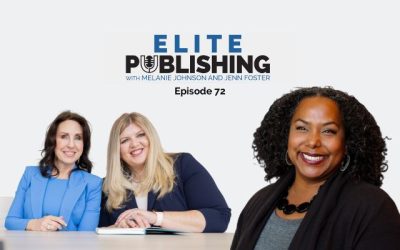30 Books You Need to Read to Earn ‘Well-Read’ Status
What books should one read to feel well-read? originally appeared on Quora – the knowledge sharing network where compelling questions are answered by people with unique insights.
Answer by Cristina Hartmann, writer who abandoned a career in law, on Quora:
For anyone who wants to attain the vaunted title of “being well-read,” it’s more about breadth than depth. (As for feeling well-read, read the postscript.)
To “feel” well-read in literature, it’s all about the categories, not the books themselves. Read a few books in a few different genres, time periods, points of views. I’ve thrown in a few controversial books, just so you know what all of the fuss is about.
Here’s how you can feel like a regular literati:
Western Classics (Ancient & Modern): to give you a good foundation for the who’s who of Western literature.
- *The Odyssey (Homer): epic of a dude who just can’t get home without a little help from the gods. (Extra credit if you read the Iliad, too!)
- *A Tale of Two Cities (Charles Dickens): the quintessential story of the French Revolution, love, and longing.
- *Pride & Prejudice (Jane Austen): the story that started the “hate at first sight turning into love” trope.
- *Anna Karenina (Leo Tolstoy): Very long. Very melodramatic. Very Russian. Very classic!
Dystopia: the stuff of our worst fears and nightmares.
- *Nineteen-Eighty-Four (George Orwell): the book that introduced “doublethink” into our lexicon.
- *Brave New World (Aldous Huxley): another classic dystopia. Gammas, Deltas, oh my!
- *The Handmaid’s Tale (Margaret Atwood): a feminist spin on the genre.
Science Fiction & Fantasy: we can’t overlook the geeky cousin of the classics, can we?
- *The Lord of the Rings series (J.R.R. Tolkien): this guy made the epic (also called high) fantasy genre. Be warned, it’s a bit of a dry read.
- *The Foundation series (Issac Asimov): some of the pioneering stories in science fiction, natch!
- *Neuromancer (William Gibson): here’s something a bit more modern. Plus, you just can’t beat “The sky above the port was the color of television, tuned to a dead channel” as a snappy first line.
Great American Novels: these zeitgeist works practically defined a time period of U.S. history.
- *The Great Gatsby (F. Scott Fitzgerald): you can’t think of the Jazz Age without thinking of “old sport.”
- *Bonfire of Vanities (Tom Wolfe): the terrible movie nonwithstanding, this book captured the self-indulgence of the 80s NYC crowd.
- *The Grapes of Wrath (John Steinbeck): I dare you to get into a conversation about the Great Depression without thinking of this book. I dare you.
Literary Heavy Hitters: books that make people go “Whoa, dude!” when you say that you’ve read them.
- *Ulysses (James Joyce): stream-of-consciousness writing plus an unhealthy sexual obsession with an orphan with a limp equals literary greatness. True story.
- *Infinite Jest (David Foster Wallace): fractals, man! Fractals!
- *Gravity’s Rainbow (Thomas Pynchon): lots of stuff happens that a lot of people pretend to understand.
Popular Fiction: those guilty indulgences that everyone has read (but won’t necessarily admit to it). Warning: this is U.S.-centric, feel free to indulge in your country’s guilty pleasures.
- *A Song of Ice and Fire series (George R. R. Martin): hey, there’s a popular HBO miniseries about it!
- *The Hunger Games (Suzanne Collins): better than Twilight.
- *Fifty Shades of Grey (E.L. James): be torn between hilarity and despair in this BDSM spin-off of a Twilight fan fiction. Who knows, maybe this’ll spice up the bedroom.
Immigrant Experience (U.S./U.K.): ah, the magical experience of being thrust into a new culture.
- *Interpreter of Maladies (Jhumpa Lahiri): say hello to our recent Indian arrivals! (For our tea-drinking cousins across the pond, try Monica Ali’s Brick Lane.)
- *Joy Luck Club (Amy Tan): the book that inspired a movie and furor in the Asian American community about stereotypes and Tan’s possible self-loathing. (For a less controversial read, try Ha Jin’s Waiting–and yes, there’s a lot of longing and waiting there.)
- *How the Garcia Girls Lost Their Accents (Julia Alvarez): how four sisters start to forget their Spanish and their native homeland of the Dominican Republic.
Non-Western Classics (Ancient): if Westerners get theirs, so should the rest of the world.
- *Ramayana (India): this is THE Hindu epic. Full stop.
- *Romance of the Three Kingdoms (China): a bit of Chinese history, highly romanticized and dramatized. Kind of like “A World Turns.”
Non-Western Classics (Modern): the stuff that you should read to feel worldly and well-read. (More applicable if you’re from the U.S. or Western Europe.)
- *One Hundred Years of Solitude (Gabriel Garcia Marquez): this novel single-handedly legitimatized Latin American literature in modern times. Too bad you don’t know who he’s talking about half of the time.
- *To Live (Yu Hua): getting banned in China just adds to its street cred.
- *Things Fall Apart (Chinua Achebe): the sad tale of colonialism in Africa. Definitely merits a frowny-face.
Satire: throw in a little giggle into your reading list.
- *Cat’s Cradle (Kurt Vonnegut): some say Slaughterhouse-Five is his best, I say this one.
- *Catch-22 (Joseph Heller): come and see what the catch-22 is. I promise you, it’s gorgeously ironic.
- *The Hitchhiker’s Guide to the Galaxy (Douglas Adams): you kill two birds with two stones here: sci-fi and satire.
This is where I reach the end of my endurance. I haven’t even gotten into the non-fiction stuff, but alas … I must eat.
With this list, you’ll feel like you can dominate the Trivial Pursuit literature section! Life is good.
Postscript: since this question is more about sentiment than reality … I hate to break it to you, but if you’re truly a well-read person, you will never feel well-read. They’re always on the lookout for their next book–that category that they’re missing–to add to their impressive list. It’s a Sisyphean goal, really.
If you feel well-read, you’re probably not.
This question originally appeared on Quora – the knowledge sharing network where compelling questions are answered by people with unique insights. You can follow Quora on Twitter, Facebook, and Google+. More questions:





0 Comments